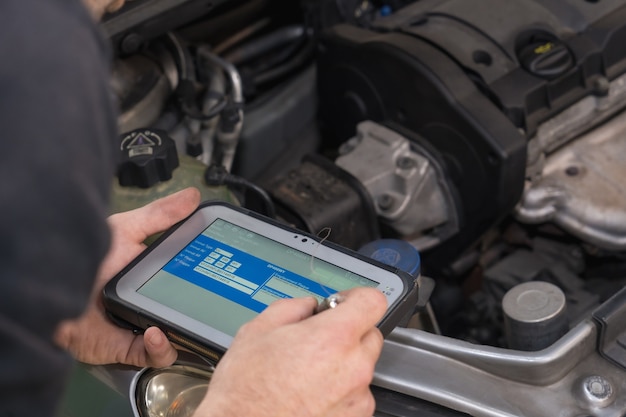Keeping your vehicle in prime condition doesn't have to be complicated. A routine tune-up is one of the most cost-effective ways to maintain your car’s performance, extend its lifespan, and avoid unexpected repairs. Whether you’re a seasoned driver or a new car owner, understanding what goes into an auto tune-up can save you money and give you peace of mind. In this guide, we’ll walk you through everything you need to know, from what an auto tune-up includes to when and why it’s needed.

During a tune-up, technicians typically inspect and replace parts such as spark plugs, air filters, fuel filters, and ignition components. They also check the engine timing, battery health, and fluid levels. These small adjustments can lead to big improvements in your car’s responsiveness and fuel efficiency.
If you're looking to schedule an auto tune up service, doing so at the right intervals can prevent more serious mechanical issues down the road.
That said, you should consult your owner’s manual and follow the suggested service intervals. If your car is older or you do a lot of city driving or towing, more frequent tune-ups may be necessary.
To stay ahead of potential issues, make it a habit to include a Vehicle Inspection as part of your car care routine. It’s a simple step that ensures your car stays road-ready for years to come.
What Is an Auto Tune-Up?
An auto tune-up is a regular maintenance check that focuses on replacing key components of your engine and addressing performance-related issues. It’s a proactive approach to ensure your car runs efficiently and safely. While older vehicles required frequent tune-ups, today’s modern engines need them less often—but they are still essential.During a tune-up, technicians typically inspect and replace parts such as spark plugs, air filters, fuel filters, and ignition components. They also check the engine timing, battery health, and fluid levels. These small adjustments can lead to big improvements in your car’s responsiveness and fuel efficiency.
If you're looking to schedule an auto tune up service, doing so at the right intervals can prevent more serious mechanical issues down the road.
Signs Your Car Needs a Tune-Up
Recognizing the symptoms of a car in need of a tune-up can help you avoid costly repairs. Here are some common signs:1. Decreased Fuel Efficiency
If you're visiting the gas station more often than usual, it may be due to worn spark plugs or clogged air filters that are affecting fuel combustion.2. Engine Misfires or Rough Idling
If your car shakes while idling or feels like it's hesitating to accelerate, that’s often a sign your engine isn’t firing properly.3. Dashboard Warning Lights
Modern vehicles are equipped with sensors that alert you to potential problems. Don’t ignore the check engine light—it may indicate a need for a tune-up.4. Trouble Starting the Car
If your vehicle is slow to start or the battery frequently dies, it could be due to aging spark plugs, a weak battery, or ignition problems.Benefits of Routine Tune-Ups
Keeping up with tune-ups isn't just about fixing problems—it's also about prevention and performance. Here are some notable advantages:- Improved Fuel Economy: A clean engine and fresh filters help your car run more efficiently, saving you money on gas.
- Longer Engine Life: Regular maintenance keeps your engine in good shape, extending the overall life of your vehicle.
- Reduced Emissions: A well-maintained engine burns fuel more cleanly, which is better for the environment.
- Enhanced Safety: Faulty ignition or worn-out components can lead to breakdowns. Tune-ups reduce the risk of these unexpected issues.
How Often Should You Get a Tune-Up?
There’s no one-size-fits-all answer. Tune-up schedules vary based on your car’s make, model, age, and how often you drive. Generally, modern vehicles should receive a tune-up every 30,000 to 100,000 miles, depending on the manufacturer’s recommendations.That said, you should consult your owner’s manual and follow the suggested service intervals. If your car is older or you do a lot of city driving or towing, more frequent tune-ups may be necessary.
Key Components Checked During a Tune-Up
A typical vehicle tune up involves a thorough inspection and replacement of several components. Here's what usually gets attention:- Spark Plugs: These ignite the air-fuel mixture in your engine. Worn plugs can lead to misfires and poor performance.
- Air Filter: A clogged air filter reduces airflow to the engine, decreasing power and efficiency.
- Fuel Filter: Keeps debris out of your fuel system and ensures smooth fuel delivery.
- PCV Valve: Controls emissions and improves engine ventilation.
- Belts and Hoses: Any signs of wear, cracks, or leaks are addressed to prevent future breakdowns.
- Battery and Charging System: Ensures your battery is holding a charge and that the alternator is working properly.
Conclusion: Why Auto Tune-Ups Are Essential
Routine tune-ups are more than just a recommendation—they're a critical part of keeping your vehicle safe, efficient, and reliable. Taking the time to schedule regular maintenance helps you avoid bigger issues and expenses in the future. Whether it’s replacing worn-out parts, improving fuel economy, or simply making sure your engine starts every morning, the value of a tune-up can’t be overstated.To stay ahead of potential issues, make it a habit to include a Vehicle Inspection as part of your car care routine. It’s a simple step that ensures your car stays road-ready for years to come.
